Political prisoner Maryam Akbari-Monfared has called on Iranian authorities to open an investigation into the deaths of two of her siblings who died along with thousands of others in a mass execution in 1988.
The petition follows the August 10 release of an audio file that reveals Ayatollah Hussein-Ali Montazeri’s strong opposition to the killings. The office representing Montazeri, overseen by Montazeri’s son, released the clip.
Akbari-Monfared and her elder brother are both serving time as political prisoners. Iran executed two of her other brothers in the 1980s for supporting the People’s Mojahedin Organization (MEK), an opposition group that Iran considers to be a terrorist organization. After they were killed, their bodies were disposed of in secret and Akbari-Monfared inherited just a few of their personal possessions.
Two more of her siblings, a brother and a sister, were killed during the mass executions, which took place in summer 1988. Now, from inside prison, Akbari-Monfared has filed a complaint calling on Tehran’s Prosecution Office to investigate the executions of her sister and brother, who had already been sentenced to prison terms when they were killed.
Like many of the family members of prisoners executed in 1988, Maryam Akbari-Monfared wants to know how her loved ones were put to death, where they are buried and who was responsible for their deaths.
She has also called on other families of the 1988 victims to join her in her complaint, to ensure those responsible for the massacre are put on trial, and to demand that Islamic Republic officials publish the names of the victims buried anonymously in mass graves in Khavaran Cemetery in southeast Tehran.
Maryam Akbari-Monfared herself was arrested in December 2009 during widespread demonstrations on the holy day of Ashura. She joined thousands in their protest against the official results of the contested presidential election earlier that year. On June 1, 2009 the Revolutionary Court Judge Abolghasem Salavati sentenced her to 15 years in prison for her membership to the People’s Mojahedin Organization. Akbari-Monfared has repeatedly denied the charge, but Judge Salavati has maintained a single response: “You are paying for your sister and brothers.”
Since then, she has done time instead of her siblings, who were executed long ago. Other members of her family have been relocated from Iraq to Albania together with other members of MEK; there is no way for them to visit her. The moment that a MEK member enters Iran, his or her fate is sealed.
Death for Distributing Newspapers
In addition to filing an official complaint, Akbari-Monfared has written a letter to Iranian authorities, which she has made available to IranWire. “Many of those executed in 1988,” she writes, “including my sister and brothers, had been tried and sentenced to prison terms earlier. The trials took place without the due process of the law and sometimes lasted no more than a few minutes. Most of them had committed no crime except distributing or reading newspapers and taking part in demonstrations.”
Her youngest brother, Abdolreza Akbari-Monfared, was arrested in 1980 when he was 17. “His crime was distributing Mojahed [the MEK newspaper],” she writes. “He spent three full years in solitary confinement at Gohar Dasht [Rajaei Shahr] Prison.”
The Revolutionary Court sentenced Abdolreza to three years in prison, but he was not released after serving his full sentence. He was executed in the summer of 1988.
One other brother, Gholamreza Akbari-Monfared, was arrested in 1983 and executed in 1985. Another brother, Alireza, was arrested on September 8, 1981 and was executed on September 19 of the same year. “The whole process of his arrest, trial and execution took only 10 days,” Maryam Akbari-Monfared says. “During the seventh-day mourning ceremonies [customary among Iranians] security agents raided our home, arrested a number of participants and took them to Evin Prison. Among the detainees were my mother and my sister Roghieh Akbari-Monfared.”
Her mother was released after five months but her sister remained in prison. The court sentenced her to eight years in jail, but she was executed in the summer of 1988.
In the 1980s, after Iran’s security forces launched a sustained attack on the MEK, many of its members escaped to Iraq, which was then at war with Iran under the leadership of Saddam Hussein. Their headquarters in Iraq was named Camp Ashraf in in commemoration of Ashraf Rajavi, the wife of MEK leader Masoud Rajavi, who the Revolutionary Guards killed in 1982.
In her recent letter, Maryam Akbari-Monfared writes that her father died in 2005 without being able to visit his surviving children at Camp Ashraf because the Islamic Republic would have regarded such a visit as a crime. “Now a number of my family members — a brother, my sister and their children — are in Albania, and for years we have been unable to meet them,” she writes.
Maryam’s brother, Reza Akbari-Monfared, who is now 63, is in also in prison serving a 17-year sentence. “I have suffered a lot during these years,” she says, “but my sisters and brothers who lost their lives are stars of love and hope in my life. I learned from them how to withstand suffering and hardship.”
Not Arrested But Kidnapped
“The pressures put on us and our families are now put on our children and are damaging their lives,” she says, referring to the large number of people who lost family members in the 1980s as a result of the targeted campaign against the MEK. “Some of the families were destroyed by these hardships and many are suffering from physical and psychological ailments. Some were forced to emigrate and many have confined themselves to their homes.” She regards the incarceration of their loved ones to be more like kidnapping than arrest. “We did not know when they were tried or where they were kept.”
According to Maryam Akbari-Monfared, after MEK members were executed, not only did the security forces refuse to give their wills to their families, they also refused to turn over their bodies, and kept the locations of where they were buried a secret. “In all these years they have not even allowed us to mourn for our loved ones,” she says. “They threatened us and closed to us the doors of Khavaran Cemetery. Then they broke the gravestones and turned the graves of our loved ones upside down.”
When the office representing the late Ayatollah Hussein-Ali Montazeri released the 1988 audio file on August 10, it not only reopened old wounds, it generated fresh arguments about the illegality of the Islamic Republic’s conduct during the late 1980s. Akbari-Monfared and others argue that the 1988 execution of political prisoners, including her brother and sister, was against sharia law, and that the Islamic Republic ignored its obligations as a signatory to international conventions.
Under the new Islamic Penal Code, which stipulates that prisoners can serve multiple sentences in parallel, Maryam Akbari-Monfared is now eligible for release. She has applied for her case to be reviewed under these terms, but her Iran’s Supreme Court is still considering her eligibility, and has been for months. She was not even granted a leave of absence for her daughter’s surgery, and she herself has recently been hospitalized.
Maryam concludes her letter by saying: “At the moment that I am writing this letter, I have no idea what my fate will be after it is published. I am aware of possible consequences but I still demand an investigation into the 1988 massacre of prisoners, especially my sister and my brother.”
visit the accountability section
In this section of Iran Wire, you can contact the officials and launch your campaign for various problems




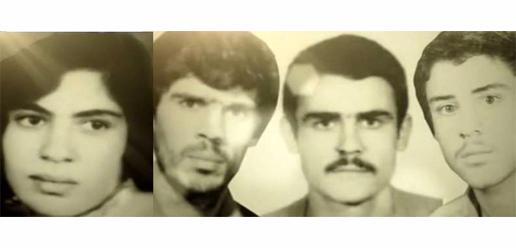
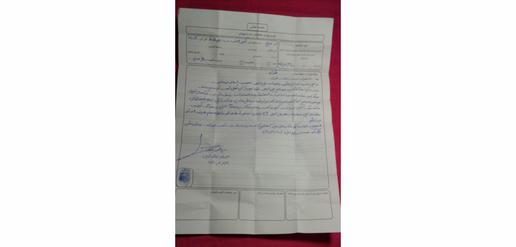
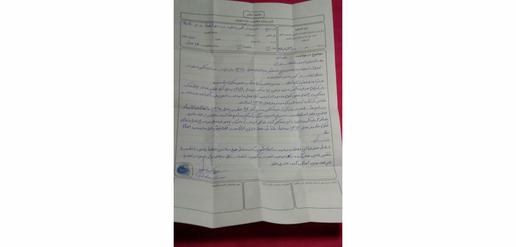


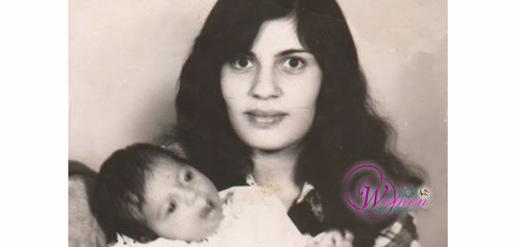



















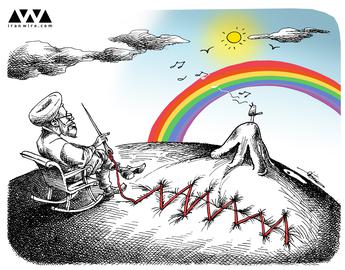
comments